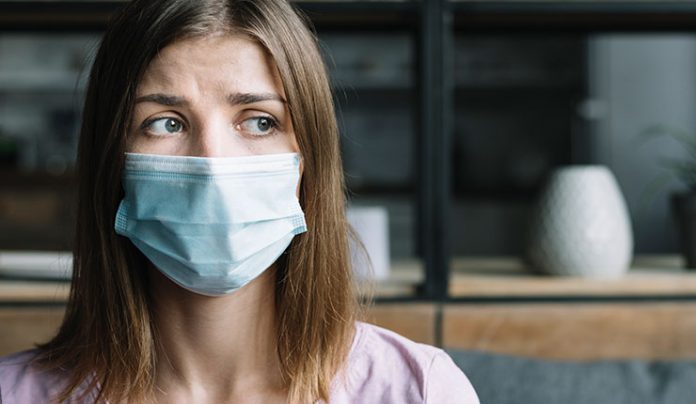
The novel coronavirus (COVID-19) pandemic has disrupted normal lives worldwide. Due to the contagious nature of this disease, lockdowns have been imposed by almost every country to contain the spread of this disease.
The new research published in the journal American Psychologist mentions that COVID-19 and the imposition of lockdown have significantly raised mental health challenges, particularly so for the most vulnerable groups.
The study from psychologists at the University of Bath is the first study to substantiate extensive media debate that health anxieties were heightened as a result of the pandemic, and it is also the first study to indicate that those in vulnerable groups are clinically more distressed as a result.
Over 800 people were surveyed from 17th April, 2020 to 26th April, 2020 when the UK was in full lockdown and the responses recorded. These results suggest that a quarter of all participants revealed significantly elevated anxiety and depression, exacerbated by lockdown and isolation. Nearly 15 percent reached clinical levels of health anxiety, which reflects that health-related anxiety has become distressing and is likely to be causing disruption to normal activities.

Health anxiety focusses on the fear of having or contracting a serious illness due to the highly communicable nature of the disease despite medical reassurance.
People have been unsure when they would see relatives again, job security has been rocked, there is an increased threat to many people’s health and government guidance is continuously changing, leading to much uncertainty and anxiety,” said Lead author, Dr. Hannah Rettie from the University of Bath’s Department of Psychology.
“What our research focused in on is how some individuals have struggled to tolerate and adapt to these uncertainties – much more so than in normal times. These results have important implications as we move to help people psychologically distressed by these challenging times in the weeks, months and years ahead,” added Rettie.
Deeper analysis reveals that those in vulnerable groups are at higher risk both physically and psychologically.
These studies should help Govt and policymakers deal with mental health issues aftermath this pandemic.
“This is important research which looks at the potential mechanisms in COVID-19 related distress, a recently prioritized area of research. These findings can help us to tailor our existing psychological treatments to help those most in need but may also be useful in considering what coping strategies might be particularly helpful at a new time of uncertainty,” said Research lead Dr. Jo Daniels also of the Department of Psychology at Bath, who has written and spoken extensively about health anxiety and how this relates to coronavirus.
“We are also now better informed as to the likely number of the population that are experiencing clinical levels of health-related anxiety. This may serve to normalize distress at this difficult time and promote the uptake of emerging models of COVID-19 related distress for those who may need support at this time of uncertainty,” added Daniels.
“While this research offers important insights into how common distress was during ‘lockdown’, it is important to stress that anxiety is a normal response to an abnormal situation such as a pandemic. It can be helpful to mobilize precautionary behaviors such as hand-washing and social distancing,” Daniels said. Yet for many, as reflected in our findings, anxiety is reaching distressing levels and may continue despite easing of restrictions – it is essential we create service provision to meet this need, which is likely to be ongoing, particularly with current expectations of a second wave. Further longitudinal research is needed to establish how this may change over time,” Daniels added.




